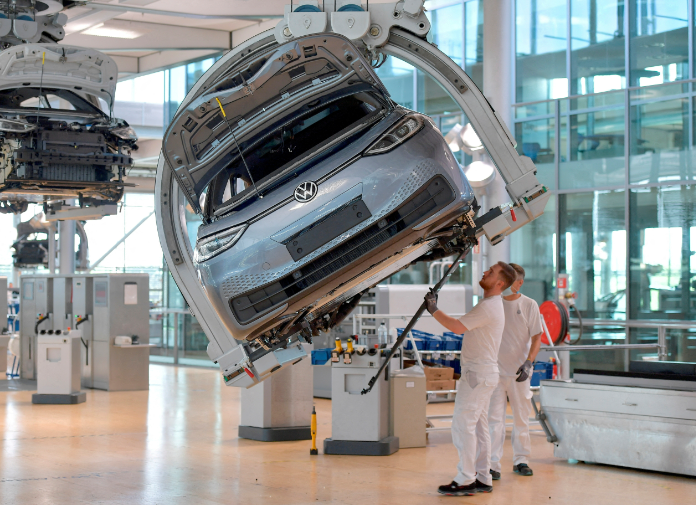Berlin, Germany – Business activity in Germany has taken a somber turn as it contracted for the fourth consecutive month in October, hinting at the possibility of a full-blown recession. The latest data, based on a preliminary survey, reveals that the downturn is not limited to the manufacturing sector but now extends to services as well. These findings were published in the HCOB German Flash Composite Purchasing Managers’ Index (PMI), compiled by S&P Global, which dropped to 45.8 in October, falling short of economists’ expectations.
The HCOB German Flash Composite PMI, a key indicator of economic health, fell from September’s 46.4 to 45.8 in October, disappointing forecasts that had anticipated a more moderate decline to 46.7. A reading below the pivotal 50 level on the PMI scale signifies a contraction in business activity, and the recent figures raise concerns about the overall economic outlook.
The composite PMI index meticulously tracks the services and manufacturing sectors, which collectively account for more than two-thirds of Europe’s largest economy. Cyrus de la Rubia, Chief Economist at Hamburg Commercial Bank, expressed his concerns, stating, “Germany is kicking off the final quarter on a sour note,” and he added that “there is much to suggest that a recession in Germany is well underway.”
The service sector, which had shown slight growth in the preceding month, unexpectedly slipped back into contraction territory in October. The reading plunged from 50.3 in September to 48.0, much lower than the anticipated figure of 50.0 according to analysts polled by Reuters.
The reasons behind the decline in the services sector are multi-faceted. A sharp rise in operating expenses, primarily driven by wage demands and inflation, has left service providers struggling to stay afloat. Additionally, a decrease in new business further contributed to the sector’s dip below the 50 mark, as reported by the survey.
In contrast, the manufacturing PMI rose slightly for the fourth consecutive month, climbing from 39.6 in September to 40.7 in October. While this was in line with analysts’ expectations, the manufacturing sector remains firmly entrenched in contraction territory.
Cyrus de la Rubia, however, did offer a glimmer of optimism, especially concerning the manufacturing sector. He pointed to some positive signs, such as improvements in new orders and output, as well as an increase in stocks of purchases. These developments suggest that there might be a bottoming-out process occurring within the manufacturing sector, possibly paving the way for a return to growth territory in the early part of the next year.
It is clear that Germany faces considerable economic challenges, with the risk of recession looming large. As the decline in business activity extends to both manufacturing and services, policymakers and businesses will need to closely monitor economic indicators and work together to navigate these turbulent times.
The coming months will be critical in determining whether the country can reverse this trend and steer its economy towards more stable and positive growth.
(Source: Miranda Murray | Hugh Lawson | Reuters)









